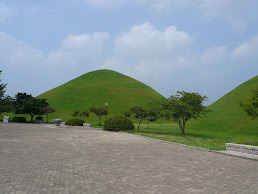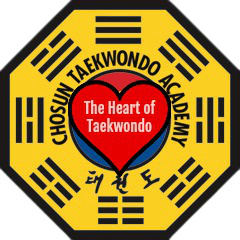Originally published by Totally TaeKwonDo Magazine
January 2021
Will of
Steel
By
Grandmaster Doug Cook
info@chosuntkd.com /
www.chosuntkd.com / www.ustaweb.com
The world today is a complex and dangerous
place filled with reward, sacrifice and, most urgently, extreme adversity
significantly more intense than we have ever experienced before in modern times.
And unlike in the past where political or material woes threatened our sanity,
we cannot negotiate our way out of what beleaguers us presently. No word or
deed from whatever source can turn the demon at our door away. Not this time.
World leaders, to a great degree, cannot be trusted to guide us simply because
they are not magicians. They, like all, are impotent against the onslaught of unmitigated
disease; the inhumanity and indifference of a microscopic monster bent of the
devastation of our species. Yet, as we know, hope abounds in the form of a
unique molecular grouping that even now is rushing to the rescue, cobbled
together by a few illuminated pharma wizards optimistically in the nick of
time.
So….where does that leave us. How, as
resilient martial artists - as rare a breed as we are - can we fortify our
minds, our bodies against the debilitating stress that we have globally endured
for the past ten months?
We are born into the lives we lead deserving
nothing more than what we gain from honest work. Some believe that in order to
get ahead you must think first and foremost of yourself. Nevertheless, while destiny
may be fulfilled by the actions we channel towards our quest for personal
success, both in our martial arts training and in private pursuits, we must
possess a compassionate heart and remain sensitive to the needs of others.
Perhaps most important, however, we must cultivate a Will of Steel, the strength necessary to protect ourselves and our
clarity of mind from punishing hardship.
Will of
Steel,
also familiar to the taekwondoist as Indomitable
Spirit, the last but perhaps the most important of the Five Tenets, can further be
quantified as the psychological muscle required to abide radical pain and suffering
whether it be unique to the individual or external in nature relating to
someone we know and love. It is the ability to remain focused regardless of concentrated
distraction in order to provide support and stability to those around us at a
time when they may need it most. Often it is irrelevant whether the trouble is
physically or mentally rooted since the despair it creates results in the same
emotional distress. Exhibiting a Will of
Steel may begin by merely acting the part; putting on a game face and
attempting not to waver while in reality your heart is plagued with fear. This may
be a very difficult task to accomplish particularly if the crisis you are
facing has come as a shock or surprise.
Fortunately, traditional taekwondo provides a
platform upon which a Will of Steel
can be nurtured. However, being a martial artist does not automatically qualify
the practitioner as being someone gifted with this brand of enduring strength.
On the contrary, having shed the bravado many people artificially display in
trying times, we as taekwondoists, by virtue of the humility demanded by diligent
training, appreciate the great effort required to genuinely develop the
simplest component of a strong character. Yet, our ability to remain open to
change and self-improvement gives us a leg up in our attempt to generate what
amounts to internal resiliency. Furthermore, to realize the virtue of a Will of Steel one must approach their
training with sincerity and purpose, fully appreciating the value of Do, or the Way. Mindful practice of any classical martial way assumes that the
practitioner is intent on a path of excellence, a road towards holistic development
and not just in search of combat skills. Paradoxically, it is through the
practice of these combat skills that the martial artist nurtures moral fiber.
Regrettably, turmoil frequently lingers
causing a Will of Steel to float on a
foundation of patience. Pandemics, sickness, financial strain and family unrest
have no determinate timetable forcing the individual to undergo unremitting anxiety
and confusion. However, any martial artist devoted to their practice can
testify to the fact that patience is the cornerstone of progress. The waiting
period between color belt levels for instance is clearly an exercise in
patience while the time span between dan grad levels is decidedly measured in
years. This custom of waiting breeds undeniable patience that can be
superimposed on almost any situation in life; even awaiting the termination of
a worldwide pandemic.

Moreover, if the practitioner is following
the path of traditional taekwondo, then certainly meditation and its related
benefits is a vital ingredient of their training regimen. There are many goals
of meditation in the martial arts, but when attempting to build a Will of Steel, serenity of mind in
conjunction with Ki enhancement, is a major contributor. Sitting in quiet
reflection for a period of fifteen minutes in the morning or evening can prove
to be a potent elixir when faced with an unending stream of anxiety. Likewise,
the period of meditation can be used to visualize Ki fortifying the mind and
body against the constant worry. The universal life force is not only an
effective tool in amplifying combat technique, but in a practical sense, acts
as a shield against bodily damage positioning it as a worthy ally of
Indomitable Spirit. Consequently, Ki not only projects, but protects.
When examined closely, all aspects of
taekwondo training can have a profound effect on the promotion of a Will of Steel. Something as basic as a
solid front stance (ap koobi), when executed correctly, can have an enormous
centering effect on the human psyche. Sparring, too, with its tendency to point
out our strengths and weaknesses within the framework of a combat environment,
fosters courage in the face of danger. Clearly, this is no small contribution
when dealing with uninvited suffering.

Additionally, breaking or, kyuk pa, while
sometimes viewed as the theatrical, dramatic component of taekwondo,
realistically develops focus and willpower. Comparing the destruction of a seemingly
unyielding block of stone to a life challenge that must be dealt with and conquered,
ultimately prepares the spirit for unforeseen challenges. Even the simple act,
if it can be termed as such, of hard training enriches the senses through
chemical reactions in the body leaving the martial artist refreshed and
invigorated following an intense class.
The classical martial arts offer support for
the cultivation of a Will of Steel
when viewed from their various philosophical perspectives as well. Most styles
that train in a traditional manner acknowledge the influence of Zen (Seon)
Buddhist doctrine. Plainly put, one of the key elements of this spiritual paradigm
is the principle of existing in the here and now. This permits the practitioner
to appreciate the moment in its fullness rather than becoming anxious about the
future or regretful when looking backwards to the past. If approached in this
manner, the specter of misfortune can be relegated to a place on the periphery
of our consciousness rather than permitting it to assume center stage in our
daily routine thus consuming us with worry; and these days, fatigues and deep
despair. By the same token, Taoism teaches us that everything occurs in its
appointed time and as clinical as this notion may initially appear when seeking
solace from unbearable emotional pain it does presume a grand design outside
the current scope of our understanding. Remaining focused and devoted to one’s
traditional taekwondo training often results in the distraction one needs most
when dealing with difficult times. In a therapeutic sense, while it may not be the
decisive answer to every problem, it represents a lifeboat in a sea of troubled
seas; an oasis in a desert of doubt.
At some point in our lives we are all faced
with the necessity of defending ourselves when faced with intense emotional stress or physical danger; 2020 is undoubtedly one of those times. Life is not
exclusively Yang, but Eum as well; often jubilant but in darker times, less
forgiving. How we deal with this dichotomy dictates the quality of our
existence. It is the goal of the martial artist, especially those cognizant of
the Way, to live life to its fullest whatever the definition of that may be to
the individual, to accept change gracefully
rather than view it as a knife to the throat. However, a Will of Steel is yet another hardened tool to be used in our quest
for self-fulfillment and provides a worthy adversary to extreme adversity.
Grandmaster Doug Cook, 8th Dan Chang Moo Kwan and 7th Dan Kukkiwon-certified black belt, is owner
of the Chosun Taekwondo Academy located in Warwick, New York, a senior student
of the late Grandmaster
Richard Chun, president/CEO of the United States Taekwondo Association, and an Advisory Council member
of the World Martial Arts Alliance.
He has authored four best-selling books entitled: Taekwondo…Ancient Wisdom for the Modern Warrior, Traditional Taekwondo - Core Techniques,
History and Philosophy, Taekwondo–A
Path to Excellence, and Taekwondo
Black Belt Poomsae: Original Koryo and Koryo. Grandmaster Cook has been a
monthly contributor to Totally TaeKwonDo
magazine since 2009, and can be reached for seminars, Korea training tours,
online ZOOM workshops or questions
regarding USTA membership at www.chosuntkd.com, www.ustaweb.com,
on Facebook, or through email at info@chosuntkd.com.

.jpg)

















